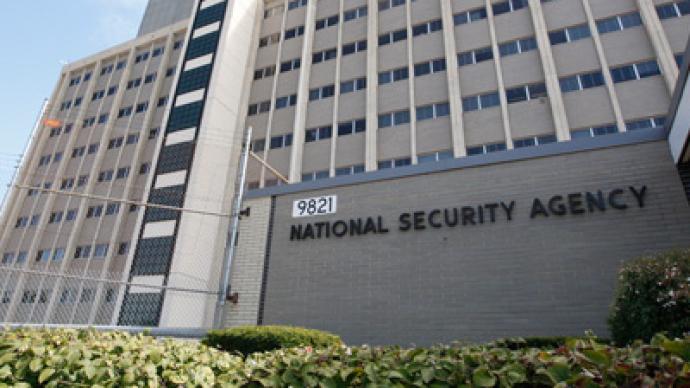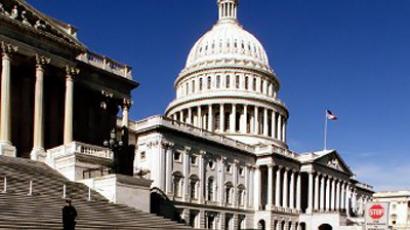NSA won't say how many Americans they've spied on; cite "privacy" concerns

Want to know if the US government has gone through your emails and listened in on your phone calls? The National Security Agency says they can’t consider such a request, and the reasoning is laughable — even by Washington standards.
Responding to a request made recently by two leading lawmakers in Congress, the NSA has sent a letter saying that they refuse to reveal the number of Americans that they have spied on through provisions made in 2008 to the Foreign Intelligence Surveillance Act (FISA), a legislation that allows the government to go through correspondence that they believe is being sent overseas. The reasoning, explains the NSA, is that informing Americans about any spying they may have been subjected to would be damaging to personal privacy. Under the last batch of amendments tagged onto FISA, the US government is given the power to pry into email, phone logs and other modes of communication that cross international borders — all in the name of national security, of course. Since little is known about how they use this act, however, Senators Ron Wyden (D-OR) and Mark Udall (D-CO) appealed to the NSA for an answer. In a letter to the Office of the Inspector General of the Intelligence Community sent last month, Senators Wyden and Udall ask, “how many people inside the United States have had their communications collected or reviewed under the authorities granted by section 702” of the FISA Amendment Act (FAA). In a response dated June 15 and made available to Wired, the Inspector General dismisses their request with the explanation that a “review of the sort suggested would itself violate the privacy of US persons.” Additionally, Inspector General I. Charles McCullough says that responding to the request would be “beyond the capacity” of the Office of the NSA’s Inspector General, George Ellard, and that “dedicating sufficient additional resources would likely impede the NSA’s mission.”The senators, to say the least, are not amused.“All that Senator Udall and I are asking for is a ballpark estimate of how many Americans have been monitored under this law, and it is disappointing that the Inspectors General cannot provide it,” Sen. Wyden tells Wired’s Danger Room this week. “If no one will even estimate how many Americans have had their communications collected under this law then it is all the more important that Congress act to close the ‘back door searches’ loophole, to keep the government from searching for Americans’ phone calls and emails without a warrant.”Last month the US Supreme Court decided that they will consider a case that challenges the powers for the federal government established in the FISA Amendments Act of 2008. The American Civil Liberties Union objects to the legislation, but the Obama administration has argued the ACLU’s plaintiffs in the case can’t file a complaint until they can prove that they’ve been spied on. With the NSA unwilling to even disclose the number of Americans subjected to secretive surveillance, though, the fight against the FISA Amendments is quickly heating up.“The appeals court properly recognized that our clients have a reasonable basis to fear that the government may be monitoring their conversations, even though it has no reason to suspect them of having engaged in any unlawful activities,” Jameel Jaffer, the ACLU’s deputy legal director and lead counsel in the case, said in a press release last month. “The constitutionality of the government’s surveillance powers can and should be tested in court. We are hopeful that the Supreme Court will agree.” In the meantime, however, it is likely that Sens. Udall and Wyden will continue to battle the NSA for more answers. On their part, Intelligence Community Inspector General McCullough writes that he “firmly believe[s] that oversight of intelligence collection is a proper function of an Inspector General. I will continue to work with you and the [Senate intelligence] Committee to identify ways we can enhance our ability to conduct effective oversight.”














